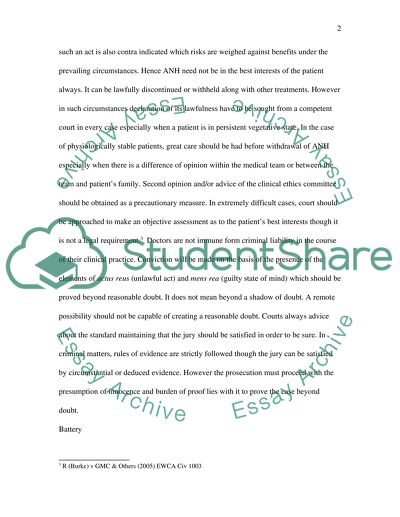Critical analysis of the legal principles governing the Essay. Retrieved from https://studentshare.org/law/1527317-critical-analysis-of-the-legal-principles-governing-the-withholdingwithdrawal-of-life-sustaining-treatment-in-incompetent-adults-and-neonates
Critical Analysis of the Legal Principles Governing the Essay. https://studentshare.org/law/1527317-critical-analysis-of-the-legal-principles-governing-the-withholdingwithdrawal-of-life-sustaining-treatment-in-incompetent-adults-and-neonates.


